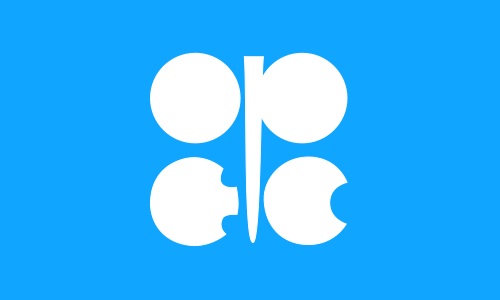What is OPEC?
OPEC stands for the Organization of the Petroleum Exporting Countries.
The OPEC is a cartel of 13 countries made up of Algeria, Angola, Ecuador, Iran, Iraq, Indonesia, Kuwait, Libya, Nigeria, Qatar, Saudi Arabia, the United Arab Emirates, and Venezuela. The organization has maintained its headquarters in Vienna since 1965, and hosts regular meetings among the oil ministers of its Member Countries.
Between 1960 and 1975, the organization expanded to include Qatar (1961), Indonesia (1962), Libya (1962), the United Arab Emirates (1967), Algeria (1969), and Nigeria (1971). Ecuador and Gabon were members of OPEC, but Ecuador withdrew on December 31, 1992 because they were unwilling or unable to pay a $2 million membership fee and felt that they needed to produce more oil than they were allowed to under the OPEC quota. Similar concerns prompted Gabon to follow suit in January 1995. Angola joined on the first day of 2007. The United States was a member during its formal occupation of Iraq via the Coalition Provisional Authority. Indicating that OPEC is not averse to further expansion, Mohammed Barkindo, OPEC’s Secretary General, recently asked Sudan to join. Iraq remains a member of OPEC, though Iraqi production has not been a part of any OPEC quota agreements since March 1998.
Fifteen years after leaving, Ecuador rejoined OPEC in November 2007 after Rafael Correa became president in January 2007. Correa has made OPEC membership a key part of oil policy since taking office.
In May 2008, Indonesia announced that it would leave OPEC when its membership expired at the end of that year, having become a net importer of oil and being unable to meet its production quota.
One of the principal goals of OPEC is the determination of the best means for safeguarding the Organization’s interests, individually and collectively. It also pursues ways and means of ensuring the stabilization of prices in international oil markets with a view to eliminating harmful and unnecessary fluctuations; giving due regard at all times to the interests of the producing nations and to the necessity of securing a steady income to the producing countries; an efficient, economic and regular supply of petroleum to consuming nations, and a fair return on their capital to those investing in the petroleum industry.
OPEC’s influence on the market has been negatively criticized. Several members of OPEC alarmed the world and triggered high inflation across both the developing and developed world when they used oil embargoes in the 1973 oil crisis. OPEC’s ability to control the price of oil has diminished somewhat since then, due to the subsequent discovery and development of large oil reserves in the Gulf of Mexico and the North Sea, the opening up of Russia, and market modernization. OPEC nations still account for two-thirds of the world’s oil reserves, and, as of March 2008, 35.6% of the world’s oil production, affording them considerable control over the global market. The next largest group of producers, the OECD (Organisation for Economic Co-operation and Development) having 30 member countries (Austira, Belgium, Canada, Denmark, France, Germany, Greece, Iceland, Republic of Ireland, Italy, Luxembourg, Netherlands, Norway, Portugal, Spain, Sweden, Switzerland, Turkey, United Kingdom, United States, Japan, Finland, Australia, New Zealand, Mexico, Czech Republic, South Korea, Hungary, Poland and Slovakia) and the Post-Soviet states produced only 23.8% and 14.8%, respectively, of the world’s total oil production. As early as 2003, concerns that OPEC members had little excess pumping capacity sparked speculation that their influence on crude oil prices would begin to slip.
